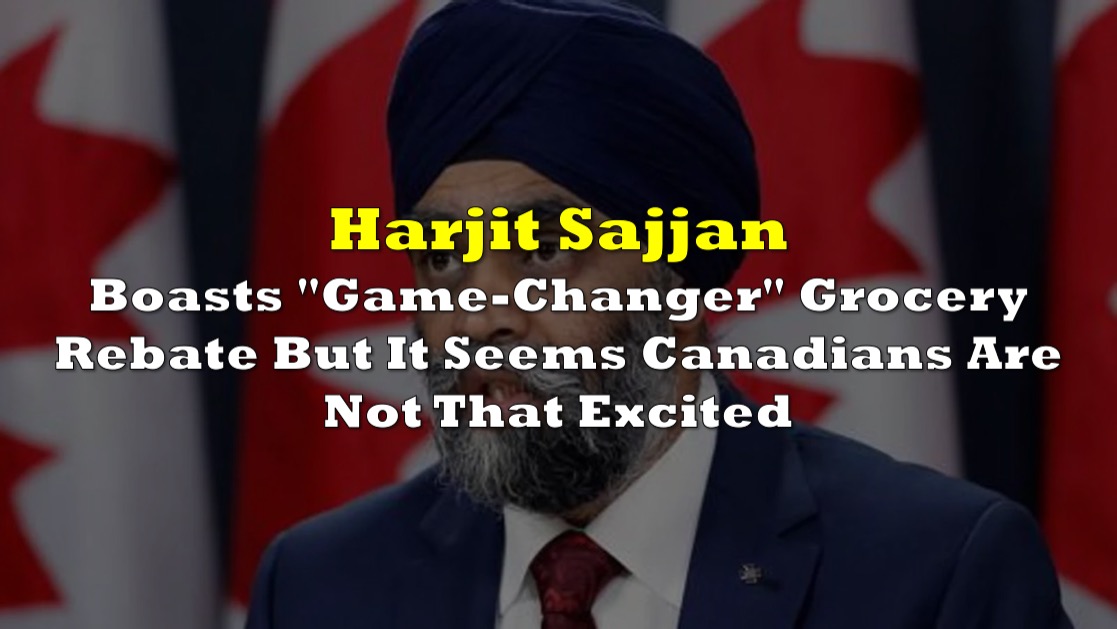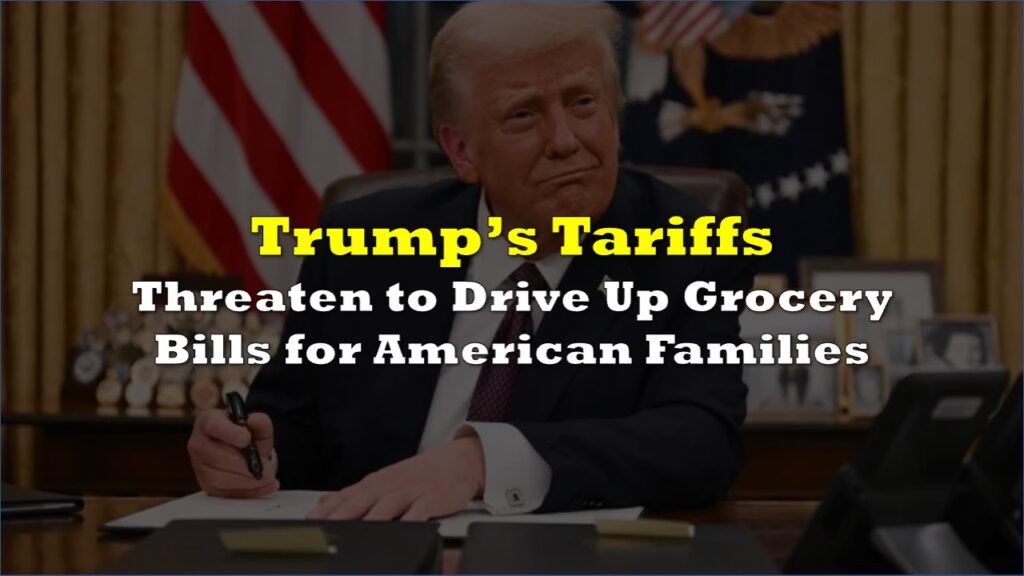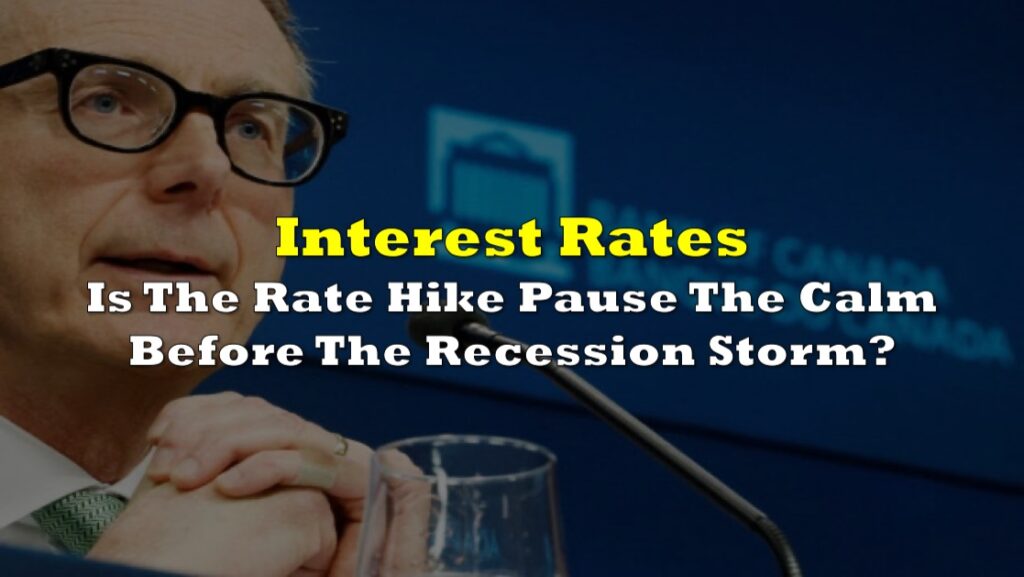Minister of International Development Harjit Sajjan excitedly shared the rollout of the government’s grocery rebate, calling it a game-changer for millions of Canadians. The Vancouver South MP claimed that the program will put “hundreds of dollars” in people’s wallets “to make life more affordable.”
But some Canadians don’t share the excitement and instead heckled the minister on Twitter.
“Can you explain how a one time payment of $200 is a game changer?” said Twitter user Sunny Po. Another user replied, “maybe add another zero.”
Twitter user Dildeep And said, “So many Canadians live paycheque to paycheque, the moment they receive it, it actually is a temporary game-changer. That’s exactly what’s wrong with this country.”
“Game changer” pic.twitter.com/gbzpZsgHW1
— rdp (@rande3p) July 6, 2023
The federal government is commencing the distribution of grocery rebate payments, benefiting eligible Canadians by depositing funds directly into their bank accounts. Designed to alleviate the impact of inflation, this one-time payment aims to support approximately 11 million low- and modest-income households.
To address the escalating cost of living, the government is repeating last year’s temporary increase in the goods and services tax (GST) rebate. Eligibility for the one-time top-up is automatic for those already eligible for the GST rebate as of January 2023, without requiring any additional applications.
Payment amounts are determined based on net income for the 2021 tax year. For single Canadians without children, eligibility for the rebate ends if their annual income surpasses $49,166. On the other hand, families with four children continue to receive payments until their income exceeds $64,946.
The federal government has published an income cut-off chart for the grocery rebate on its official website. Families of four meeting the eligibility criteria could receive up to $628 through direct deposit or a cheque from the Canada Revenue Agency. Single individuals without children may receive up to $234. The precise rates are dependent on income and the number of children in the household.

The GST rebate is disbursed four times a year, with payment dates for 2023 set on January 5, April 5, July 5, and October 5.
It’s important to note that some Canadians may be eligible for the July GST rebate but not the grocery rebate, and vice versa. The grocery rebate utilizes 2021 income tax returns for calculation, while the GST rebate is based on 2022 tax returns.
The annual amount received through the GST rebate depends on the family’s income level and composition. The federal government has provided a comprehensive chart outlining the various GST payment thresholds.
With Canada’s latest grocery inflation figure for May coming in at 9.0% and its food banks seeing record usage over the past several months, Canadian consumers have been struggling to feed themselves. In spite of this struggle, Empire Companies Limited (TSX: EMP), which owns several grocery chains including Sobeys and Longos, and is considered one of Canada’s “Big 3” grocers alongside Loblaws and Metro, indicated this past week that they would be expanding their stock buyback program.
During a press conference on Wednesday, Finance Minister Chrystia Freeland acknowledged that the one-time payment alone will not entirely resolve the challenges posed by rising living costs. However, she emphasized that it will have a meaningful impact on those in greatest need.
Freeland stated, “The rebate represents tangible support and will make a difference for those who require it the most. While it may not cover all expenses, we must be transparent about that fact.”
Additionally, Freeland expressed concerns that providing increased financial assistance to more Canadians could potentially exacerbate inflation. She emphasized the government’s commitment to avoid further negative impacts on the economy.
Statistics Canada reported that Canada’s inflation rate dropped to 3.4% in May, marking the lowest rate since June 2021. Despite this overall slowdown, food prices continued to rise significantly, with grocery prices increasing by nearly nine percent on a year-over-year basis in May. Although slightly lower than the 9.1% increase recorded in April, it remains nearly three times higher than the overall inflation rate.
BREAKING:
— WhaleWire (@WhaleWire) July 6, 2023
Canada’s Liberal Party is running campaigns claiming they are “Making Life More Affordable”, amid tanking polls due to inflation concerns.
In their recent press conference in a local grocery store, they removed all price tags off the shelf behind them… pic.twitter.com/sypVyu4RLq
Information for this briefing was found via CBC and the sources mentioned. The author has no securities or affiliations related to this organization. Not a recommendation to buy or sell. Always do additional research and consult a professional before purchasing a security. The author holds no licenses.









